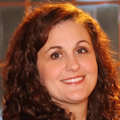I set an intention every time I write something. My intention is that whatever I put out there is helpful, relevant, and adds value. The article that you are reading now was written a month prior to its publication. With that, I cannot help but wonder what will be relevant when you are reading these words. The world we live in has shifted so greatly just over the past 7 days. What will late April, 2020 look like and what will be relevant? There is simply no way to tell right now as I write this article, and this created quite a conundrum as I planned my piece for this month.
At the time of this writing, many of our dental peers are no longer working for at least the next two weeks in most states. For some, this period has been confirmed to stretch out longer, leaving many of us to believe that other states will likely follow suit. Employees and employers alike are facing financial fear while they attempt to navigate through the process of applying for benefits and other possible programs while trying to stay afloat with limited to no income.
There are concerns about health while we do our best to keep ourselves, our families, and our communities safe. We are wondering how long will this stretch out before we can begin to start to pick up the pieces and rebuild? How much worse will things get before they get better? There is a tremendous strain on both our health-care system and our economy, and it's scary to think about. Will the requirements for personal protective equipment change now that we are facing an enemy for whom our current standard precautions are not enough? When will PPE even be available again? Some are even questioning their careers in health care as they consider the inherent risks of their profession, particularly in the landscape of emerging diseases.
With information and situations changing daily, one thing remains constant in my mind. How are we holding up in light of the challenges, fear, and uncertainty that we are facing daily? We are aware of what we need to do to try to protect our physical health in the face of a global pandemic. What do we do to attempt to stay mentally healthy during this time where we are under a constant barrage of stressful thoughts, worries, and negativity without a definitive endpoint in sight?
As I stay connected virtually with my dental tribe, I’m seeing a dichotomy. There are those getting swept up in a scarcity and panic mentality, and it is understandable. Then there are those who are shifting their mindsets to turn a scary and unpredictable time into an abundance mindset. I call it the "gift-in-the-shift” mindset, meaning that even as the world is shifting, we can look at our current circumstances as a gift. Even in darkness, you have the power to let light in and to reframe your thoughts towards gratitude. An example of a shift would be going from this:
I am stuck at home, I am worried about my income and future employment, and I’m fearful about what is to come.
To this:
I am still healthy, I get to spend some time at home, and I finally have some freedom to focus on myself. [Or your family, or whatever else is important to you and has been placed on the back burner]. I have an opportunity to recuperate, reevaluate, and revise the blueprint of my life.
Some of these “shifters” are seeing this is time to rest their bodies for a while. We all know the incredible physical demands a career in dental hygiene places on us. Having even a couple of weeks to relieve the body of the repetitive motion that causes cumulative trauma and injury is already providing relief to some of our colleagues after only one week at home.
Other shifters see it as the gift of added time. Let’s face it, up to now, how many of us were suffering from busy-ism—that feeling like you are running on all cylinders all day, but just don’t have enough time to do it all. You now have the gift of some time to do things like organize your home, enjoy more time with your children, reconnect (albeit virtually for a while) with people who mean a lot to you, read that pile of books you have been meaning to get to, or spend time developing a new routine that will bring you closer to your health and fitness goals.
Shifters aren't turning a blind eye to financial uncertainty, but they are seeing it as an opportunity to reevaluate their budget. They are sharing information about how they are transferring balances to lower interest credit cards, working with creditors to apply for extensions (many are offering deferments, and this practice will likely continue and expand), and are looking for lower cost alternatives to their current repertoire of products and services. For some, even cycling though those pantry items that were stored in the back of the cupboard is considered a blessing.
Many shifters are taking the time off as an opportunity to clean out closets, garages, and sheds. They are repurposing items long forgotten about or are offering items for sale or donation via online garage sales or through charitable organizations. Your neighbor who might be at home for several weeks with young children might love the gift of games or books that your children no longer use, and you could gain some much-needed closet space.
For those who may have been considering seeking a new job or looking at opportunities outside of the op before COVID-19 came to North America, it might be a good time to do some research, update your resume, and network. So many colleagues are home right now and would probably welcome the opportunity to virtually connect with you to share some insights and pointers. Looking toward the future and taking some action can also give you a sense of some control at a time where much seems out of our control.
Another thing a shifter does is use this time to take an academic inventory. Do you have the continuing education credits you need? Are there areas within dentistry where you feel you don’t have as much knowledge as you’d like? Now is a great time to build your CE library, and there are plenty of online resources to do so.
A shifter stays informed and balanced with current information. As health-care providers, it is important to understand the science of emerging diseases as we move forward. The landscape of what we might be exposed to is changing. Further, it is important to stay informed about what is happening in your area so that you can follow precautions and recommendations to do your part to slow the spread. It is equally important to be able to discern trustworthy sources from other sources. We are fortunate that during our course of study, we were taught about evidence-based information and how to decipher real data from conjecture, sensationalism, and false information. Shifters limit how often they check for updates because they know that constant monitoring, fact checking, and discussions (particularly those that can become heated on social media) can fuel anxiety. They pay attention to how they are feeling and adjust their time and activities accordingly.
Another thing “shifters” do is look for opportunities to help. Maybe it’s dropping some grocery items off on an elderly neighbor’s porch, looking into opportunities at this critical time when health care workers on the frontlines may need some back up, or finding a way to share gifts or talents with others. As much as many of us may be physically separated now, it seems like an important time to stay connected, particularly with those who may feel lonely and isolated.
Given the constant evolving nature of our current times, this article reflects only my observations. It draws on what is known about the strength and resiliency of the human spirit when faced with challenges and uncertainty. We all have to do our part, try our best, focus on solutions and be part of history. We are navigating unprecedented and uncertain times, but with that we have an opportunity to choose how we show up. This not only makes a difference in your own situation, but you have the power to influence the way others respond as well. You never know whose life you may be impacting for the better. Stay safe and be kind to each other, as we are all doing our best during unprecedented times. Wishing you all the best.
Julie Whiteley, BS, RDH, is certified in human resources. She holds degrees in business administration and dental hygiene and has worked extensively in both fields. She is on the faculty of Massachusetts College of Pharmacy and Health Sciences University in Boston. Julie bridges her knowledge and experience from business, clinical hygiene, and teaching to deliver information and programs that enhance dental practices. Contact her at [email protected].
About the Author

Julie Whiteley, BS, RDH
Julie Whiteley, BS, RDH, is certified in human resources. She holds degrees in business administration and dental hygiene and has worked extensively in both fields. She is on the faculty of Massachusetts College of Pharmacy and Health Sciences University in Boston. Julie bridges her knowledge and experience from business, clinical hygiene, and teaching to deliver information and programs that enhance dental practices. Contact her at [email protected].
